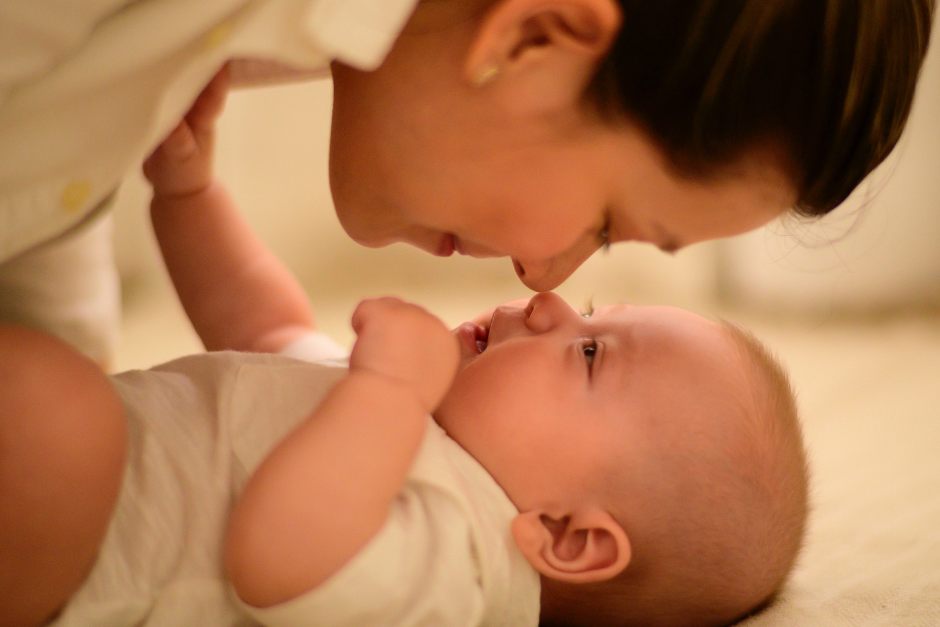Before you were born, you were floating warmly, comfortably and securely in your mother’s womb. You were snug, safe and content. You basked in the biochemical messages that you are loved, wanted, and all is well.
Then suddenly, one day, you were thrust into a world of bright lights, loud noises and unfamiliar smells. Adding insult to injury, you were abruptly poked and prodded. This was scary stuff — until finally, and with great relief, you were reunited with the familiar heartbeat and soothing voice you’d come to know. You were held in loving arms, able to relax into adoring gazes and smiles. You could snuggle into the splendor of a soft, warm breast and its life-giving nurturance.
At this time, we can see some of the most critical moments of early development: The building of an attached relationship with a protective and loving caregiver who provides security and support. This relationship is a basic human need, rooted in millions of years of evolution. Babies instinctively reach out for the safety of the “secure base” with caregivers; parents instinctively protect and nurture their young.
Attachment is a biological, emotional, mental and social experience. Instinctual attachment behaviors in the baby are activated by cues or signals from the caregiver (eye contact, smiles, touch, need fulfillment, safety, love). Thus, the attachment process is defined as a “mutual regulatory system” in which the baby and the caregiver influence one another over time.
In a securely attached relationship, the caregiver is sensitive and responsive to their child’s cries. They become attuned to whether their child is crying because they are hungry, uncomfortable or in need of attention. In turn, the infant learns to trust that their physical and emotional needs will be met with love and nurturing. It is a bond of emotional communication between the infant and caregiver.
Even in these earliest days of life, a securely attached relationship between infant and caregiver provides a foundation that allows a child to:
• To learn basic trust and reciprocity, which serves as a template for all future emotional relationships, such as marriage.
• To explore the environment with feelings of safety and security (“secure base”), which leads to healthy cognitive and social development.
• To develop the ability to self-regulate, which results in effective management of impulses and emotions (i.e., self control).
• To create a foundation for the formation of an identity that includes a sense of competency, self-worth, and a balance between dependence and autonomy (i.e., caring for others and caring for self).
• To establish virtues and a moral code that involves empathy, compassion, honesty, integrity and a conscience.
• To generate a core belief system that includes positive perceptions of self, caregivers, others, and life in general (i.e., positive self esteem and an optimistic worldview).
• To provide a defense against stress and trauma, which incorporates resourcefulness and resilience (i.e., successful stress management, recovering from adversity).
Children who begin their lives with the essential foundation of secure attachment fare better in all aspects of functioning as they develop. Numerous longitudinal studies have demonstrated that securely attached infants and toddlers do better over time in the following areas:
- Self-esteem
- Independence and autonomy
- Resilience in the face of adversity
- Ability to manage impulses and feelings
- Long-term friendships
- Relationships with parents, caregivers, and other authority figures
- Prosocial coping skills
- Trust, intimacy and affection
- Positive and hopeful belief systems about self, family and society
- Empathy, compassion and conscience
- Behavioral performance and academic success in school
- Promoting secure attachment with adult partners and with their own children when they become adults.
Next in our series: How early attachment experiences impact infant brain development.
Evergreen Psychotherapy can help
Contact us to learn more about how to help a child you love develop appropriate attachment.



Good day. My wife and I are foster parents to an amazing 20 month old little girl. She has been in our care since she was 3 days old. Her biological mother was addicted to methamphetamines and has had no real relationship to her and no bond to her has ever been formed other than what I can imagine was chaotic or traumatic. She has a great aunt who has expressed a willingness to adopt her. My question is what attachment issues may she struggle with later on, or even in the transition, considering we have been her only secure attachment ? Is it possible she would never form an attachment and be untrusting considering ours has been her home since birth ? She calls us mommy and daddy. We have 7 biological children and another foster who is just now 12 months. She has an amazing Bo d with each of what can be considered her siblings at this point. What detriment might that cause losing all 9f those connections at once ? Thank you for any information.
Tony, Sounds like your little girl has developed a strong and secure bond with your family. Losing those connections can be very traumatic, and cause “early developmental trauma.”
Thanks!